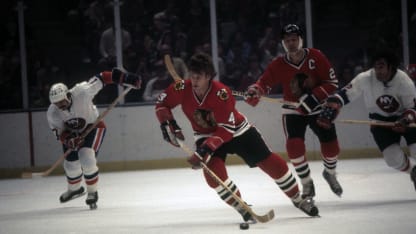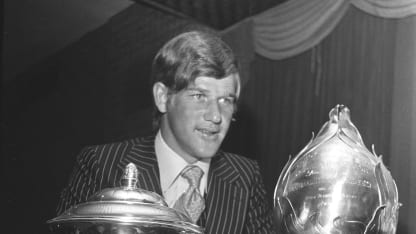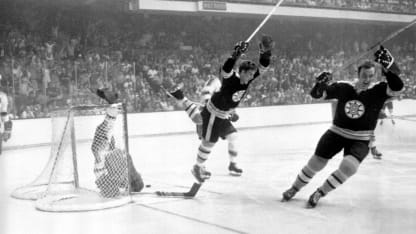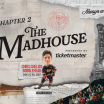"The best player in the history of the sport," proclaimed Blackhawks Chairman Arthur Wirtz during a public press conference at the Bismarck Theater, where Mayor Richard J. Daley made Orr an honorary citizen of Chicago. Several of Orr's new teammates attended: Stan Mikita, Tony Esposito, Keith Magnuson, Cliff Koroll and Ivan Boldirev, along with about 3,000 fans.
Bobby Hull had departed in 1972, and though the Blackhawks went to the Final without him the year after, they had flattened out and needed a jolt. Orr represented hope, albeit with a serious caveat. His ravaged left knee was bone on bone. He had played only 10 games in his last season with the Bruins.
"We are thrilled," intoned President Bill Wirtz. "We have gambled, we have placed our bet down, but at least we have bet on a thoroughbred."
Orr actually began his Blackhawk career with Team Canada, during a preseason tournament against the world's best from the Soviet Union, Sweden and Czechoslovakia. Canada triumphed and an ebullient Orr was voted most valuable player. But as Bobby Clarke of the Philadelphia Flyers rued, "he did it on one leg."
Alas, it was not to be.
"That was a long time ago," Orr was saying the other day from his home in Massachusetts. "It was difficult to leave Boston, but I was excited about Chicago. Great city, another Original Six franchise, wonderful old building, terrific fans. Boston and Chicago had some great games against each other. Tough, competitive games. I knew the clock was ticking, though. My knee was bad, and not getting any better. I was thinking, while I played for my country in 1976, that I might not have much left. But I wanted to give it a go, because I played hurt before. I wish I could have done more for the Blackhawks, but I just wasn't able."





















